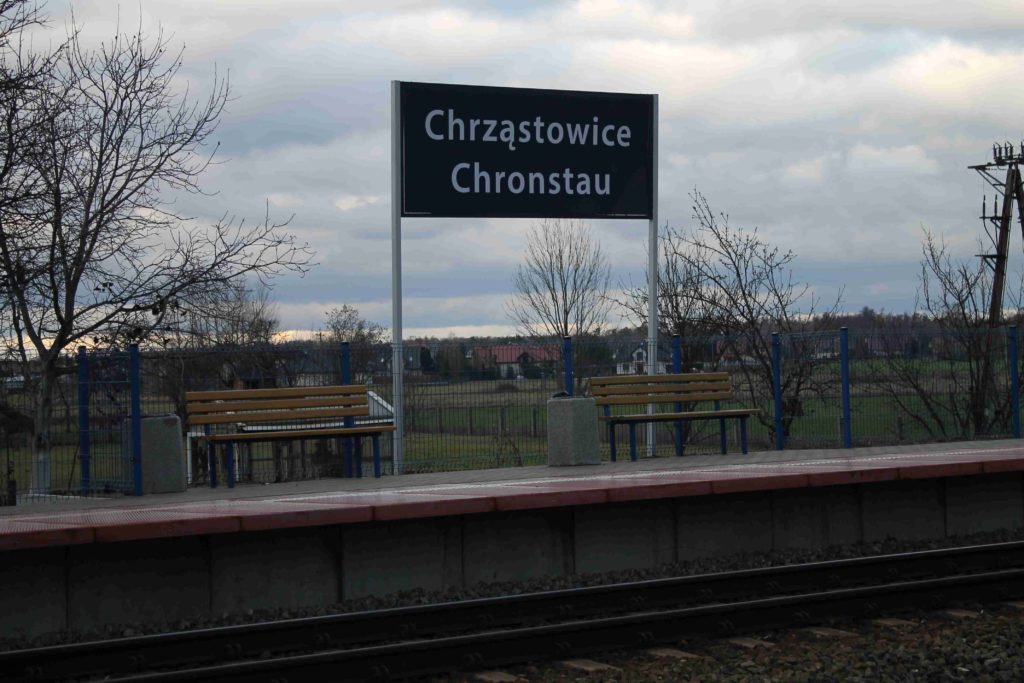
Initiative of the German youth in Poland for multilingual place-name signs
17.02.2021The Association of the Youth of the German Minority in Poland (BJDM) has launched the campaign #wPolsceusiebie #inPolendaheim #naszHeimat, with which it wants to send a media-effective signal for multilingual place-name signs in minority regions. As part of the initiative, the BJDM is asking minority communities in Europe to post photos of multilingual place-name signs using the hashtags mentioned above. FUEN supports this project and would like to ask you for your support.
The initiative is a response to the actions of Polish MP Janusz Kowalski, who questioned the legality of the bilingual place-name signs (Polish-German) at various railway stations in Opole last week. The MP from the ruling party and Vice Minister of State Assets published aquestion to the Minister of Infrastructure in which he allegedly points out that the erection of the signs is illegal. The question reveals that he wants the bilingual place-name signs at the railway stations in Opole to be taken down, as he sees them as a danger to Poland and claims that they were placed there illegally.
Rafał Bartek, chairman of the Social-Cultural Society of Germans in Opole Silesia, stresses to Wochenblatt, the weekly newspaper of the German minority in Poland, that the placement of the signs is legal. "The municipality consulted with the Ministry of the Interior for a long time to avoid any discrepancies. The decision of the Ministry of the Interior finally gave the municipality the right to apply the Minorities Act wherever a topographical designation appears."
Bernard Gaida, chairman of the Association of German Societies in Poland and AGDM spokesperson, points out in the same Wochenblatt article the connection between the incidents and the European Citizens' Initiative Minority SafePack. "It is the best proof that one has to work on the awareness of such people as Janusz Kowalski, who certainly likes the Polish name Cieszyn on the railway station in Český Těšín (Teschen), but cannot stand German names on railway stations in the part of Upper Silesia that lies in Poland. Equal European standards for national minorities are needed more than ever".
At a press conference organised by the Youth of the German Minority in Poland, the deputy chairperson of the BJDM, Zuzanna Herud, as quoted in the Wochenblatt, said: “Minority rights also serve us, young people, because we are the future of the minority and the region. So when someone says that it is dangerous to have bilingual signs at the railway stations in Chronstau and Dembiohammer, it is simply shocking for me to hear something like that. After all, we are at home here. The German minority will always live here and no one should call us dangerous just because of bilingual signs that are a symbol of our identity."
Photo: R. Urban via Wochenblatt
SAJTÓKÖZLEMÉNYEK
- FUEN wishes you a peaceful Christmas season, restful days and a bright, hopeful start to the new year!
- FUEN calls on the EU to act over systematic ethnic-based land confiscations in Slovakia
- Women of Minorities conference in Budapest calls for structural change to ensure equal political participation of minority women
- FUEN President Olivia Schubert at UN Forum on Minority Issues in Geneva
- "Laboratory of Peace": 28th Seminar of Slavic Minorities held in European Capital of Culture Gorica/Gorizia
- Equality in Political Participation and Representation: Third “Women of Minorities” Conference to Be Held in Budapest
- FUEN Working Group on Education discusses challenges and future of minority schooling in Europe
- 28th Seminar of Slavic Minorities in Europe to take place in Gorica/Gorizia, Italy
- Olivia Schubert in her first interview as FUEN President
- FUEN Assembly of Delegates elects new leadership – Olivia Schubert becomes new President














